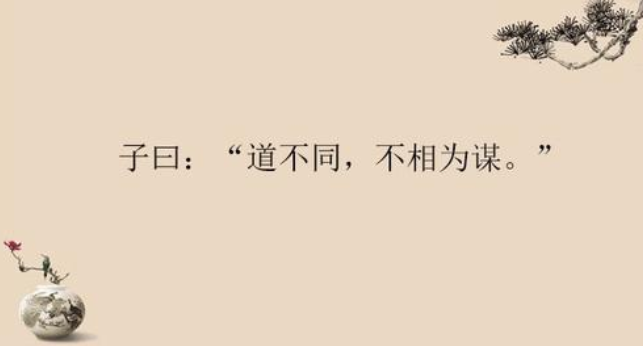The Master said, "The superior man cannot be known in little matters; but he may be intrusted with great concerns,
子曰:“君子不可小知而可大受也,
the small man may not be intrusted with great concerns, but he may be known in little matters."
小人不可大受而可小知也。”
The Master said, "Virtue is more to man than either water or fire.
子曰:“民之于仁也,甚于水火。
I have seen men die from treading on water and fire, but I have never seen a man die from treading the course of virtue."
水火,吾见蹈而死者矣,未见蹈仁而死者也。”
The Master said, "Let every man consider virtue as what devolves on himself. He may not yield the performance of it even to his teacher."
子曰:“当仁不让于师。”
The Master said, "The superior man is correctly firm, and not firm merely."
子曰:“君子贞而不谅。”
The Master said, "A minister, in serving his prince, reverently discharges his duties, and makes his emolument a secondary consideration."
子曰:“事君,敬其事而后其食。”
The Master said, "In teaching there should be no distinction of classes."
子曰:“有教无类。”

The Master said, "Those whose courses are different cannot lay plans for one another."
子曰:“道不同,不相为谋。”
The Master said, "In language it is simply required that it convey the meaning."
子曰:“辞达而已矣。”
The music master, Mien, having called upon him, when they came to the steps, the Master said, "Here are the steps."
师冕见,及阶,子曰:“阶也。”
When they came to the mat for the guest to sit upon, he said, "Here is the mat."
及席,子曰:“席也。”
When all were seated, the Master informed him, saying, "So and so is here; so and so is here."
皆坐,子告之曰:“某在斯,某在斯。”
The music master, Mien, having gone out, Tsze-chang asked, saying. "Is it the rule to tell those things to the music master?"
师冕出。子张问曰:“与师言之道与?”
The Master said, "Yes. This is certainly the rule for those who lead the blind."
子曰:“然,固相师之道也。”



